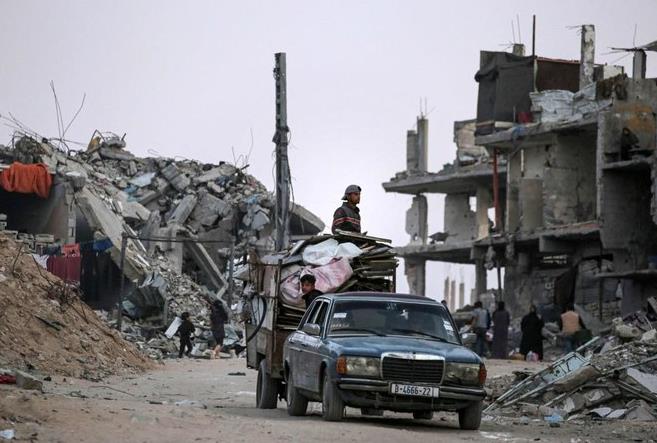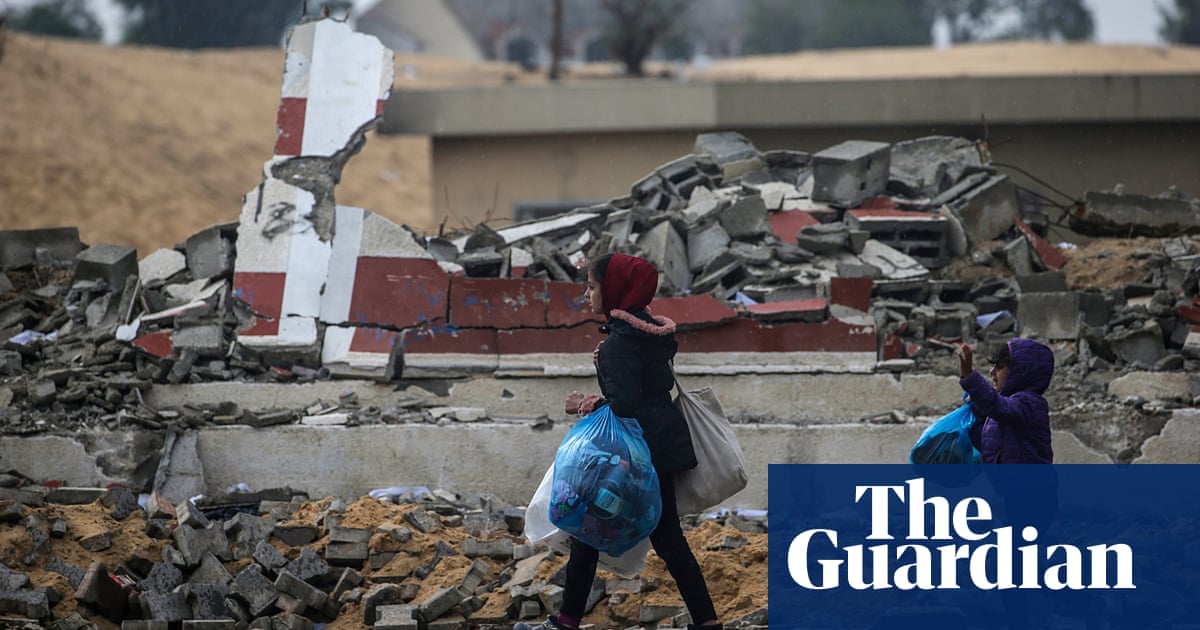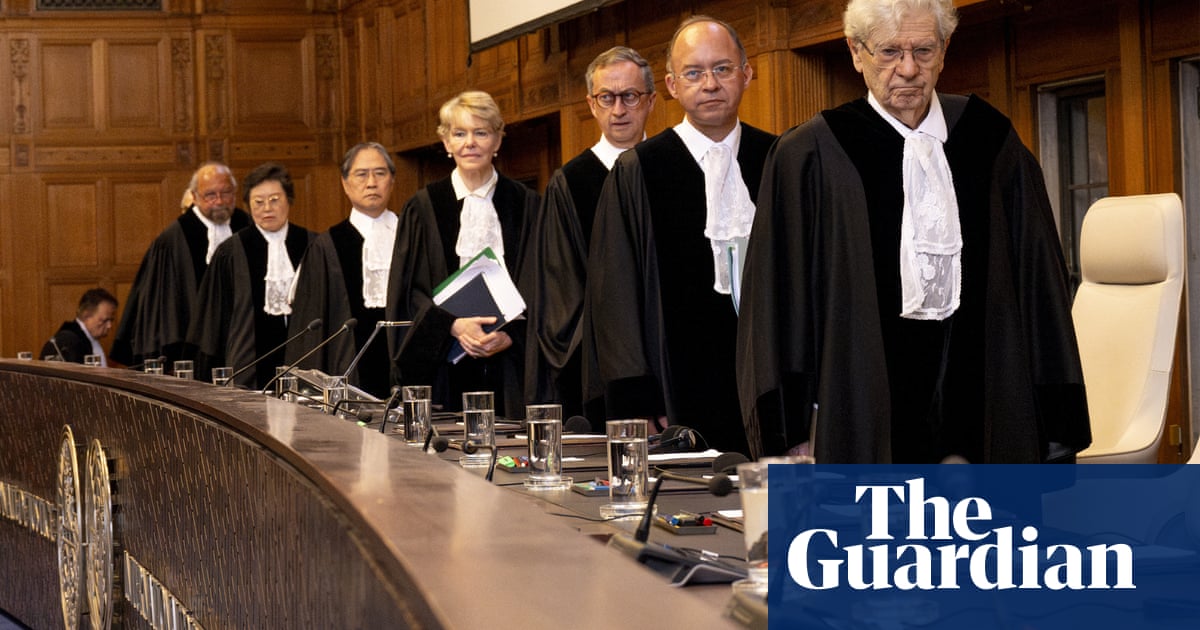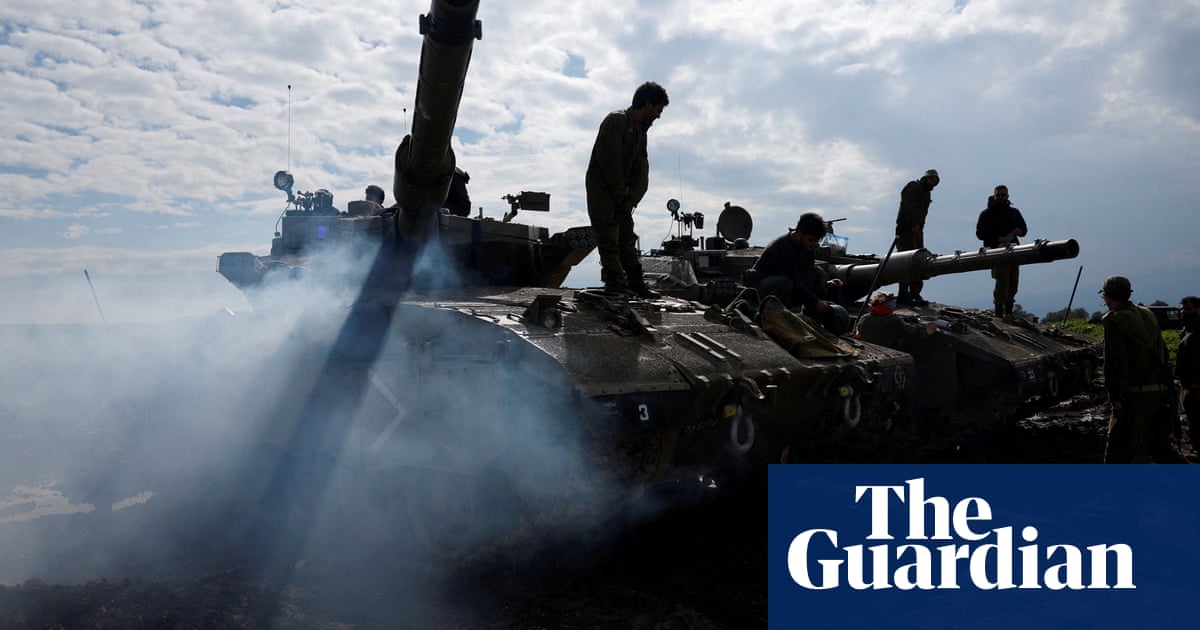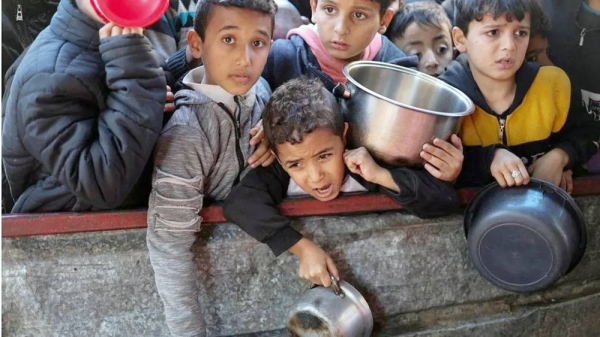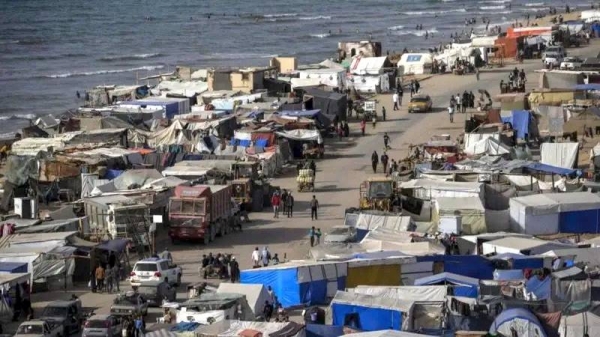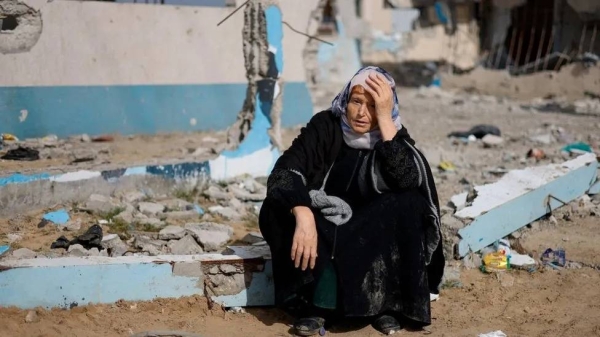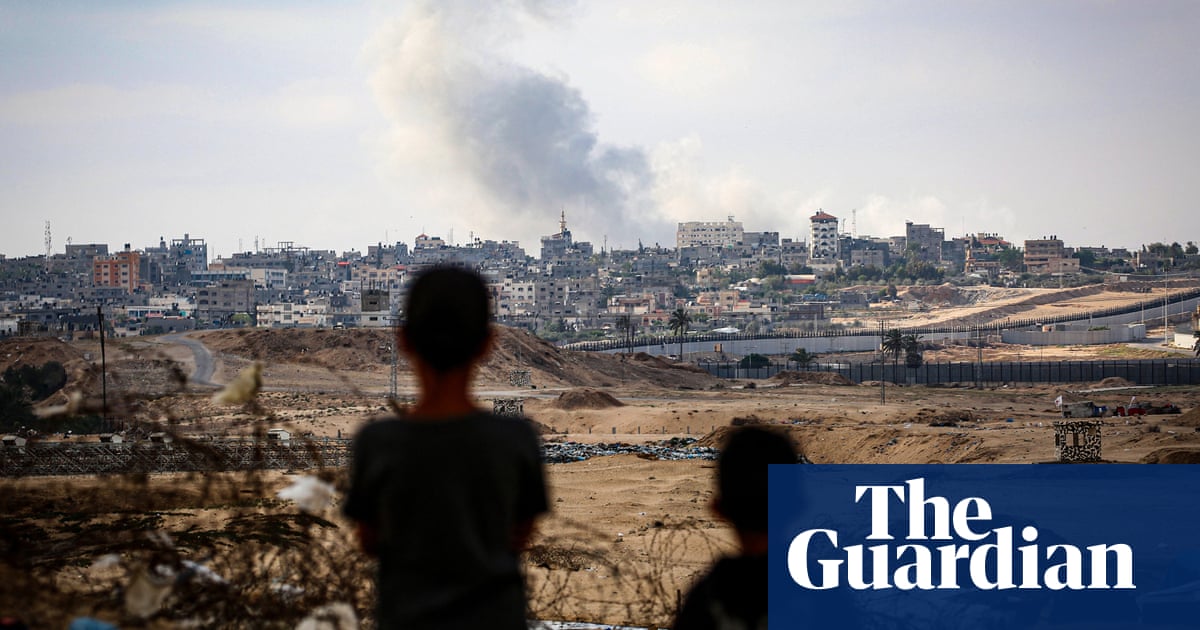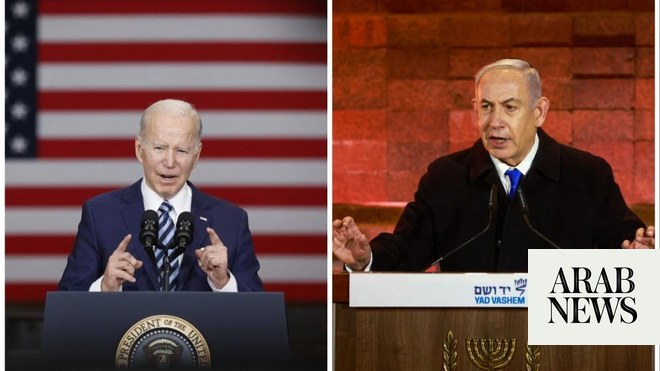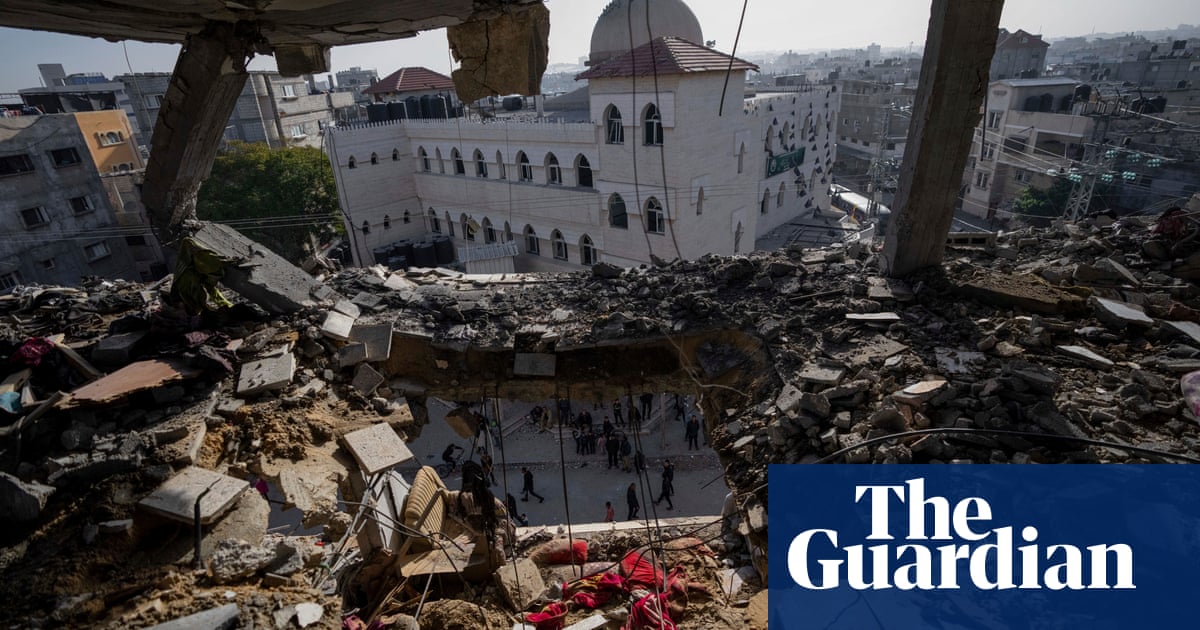
Israel has moved closer to a full-scale ground offensive against the southern Gaza city of Rafah, as Benjamin Netayahu ordered military leaders to present a plan to evacuate civilians from the area.
Despite warnings from a senior aid official that an assault on Rafah – where about 1.3 million displaced Palestinians are sheltering – would lead to a “bloodbath”, and the UN urging against forced mass displacement, Israel appeared determined to push ahead.
“It is impossible to achieve the war goal of eliminating Hamas and leaving four Hamas battalions in Rafah,” the Israeli prime minister said in a statement, rejecting a warning from the Biden administration that it could not support an offensive against Rafah. “On the other hand, it is clear that a massive operation in Rafah requires the evacuation of the civilian population from the combat zones.”
With more than half of Gaza already under evacuation orders, widespread destruction throughout the coastal strip, and continuing fighting, it was unclear where such a large number of people could safely be moved.
“No war can be allowed in a gigantic refugee camp,” said Jan Egeland, the secretary general of the Norwegian Refugee Council, warning of a “bloodbath” if Israeli operations expanded there. A United Nations spokesperson, Stéphane Dujarric, said civilians in Rafah needed to be protected, but the UN did not want to see any forced mass displacement.
Situated on the southern border with Egypt, Rafah’s prewar population of several hundred thousand has increased massively as about half of the territory’s 2.3 million people have sought shelter in the city and surrounding areas.
The disclosure by Netanyahu’s office that it had requested detailed evacuation plans, along with a military plan for fighting in the city, came a day after Joe Biden described Israel’s military response in Gaza as “over the top” and said he was seeking a “sustained pause” in fighting.
“I’m of the view, as you know, that the conduct of the response in the Gaza Strip has been over the top,” the US president told reporters late on Thursday, even as his secretary of state, Antony Blinken, left the region without reaching an agreement.
Biden said he had been pushing for a deal to normalise relations between Saudi Arabia and Israel, increase humanitarian aid for Palestinian civilians and pause the fighting temporarily to allow the release of hostages taken by Hamas.
“I’m pushing very hard now to deal with this hostage ceasefire,” Biden said. “There are a lot of innocent people who are starving, a lot of innocent people who are in trouble and dying, and it’s got to stop.”
The previous day the US specifically warned against attacking Rafah. The US national security council spokesperson, John Kirby, said on Thursday that any assault on Rafah without due consideration of civilians would be a disaster and “we would not support it”.
The comments were echoed at the state department, with the spokesperson Vedant Patel saying that going ahead with such an offensive “with no planning and little thought in an area where there is sheltering of a million people would be a disaster”.
Biden’s comments mark a sharp change in language for the president, who has been supportive of Israel, including in the immediate aftermath of Hamas’s 7 October attack on southern Israel.
Philippe Lazzarini, the head of the UN agency for Palestinian refugees, said Israeli military action on Rafah would be a “total disaster”.
Speaking before Netanyahu’s evacuation announcement, Lazzarini, said the situation there was “extraordinarily worrisome” and that airstrikes had hit near the agency’s base in Rafah on Thursday.
“The situation is becoming more and more tense, more and more confusing … any large-scale military operation among this population can only lead to an additional layer of endless tragedy that’s unfolding, and that we witness on a daily basis,” he said. “There’s a sense of growing anxiety and growing panic in Rafah. People have absolutely no idea where to go after Rafah … I don’t know how long we will be able to operate in such a high-risk environment.”
The office of the Palestinian Authority president, Mahmoud Abbas, said Netanyahu’s plan for military escalation aimed to drive Palestinians from their land. In a statement it called on the UN security council to take heed, “because taking this step threatens security and peace in the region and the world. It crosses all red lines”.
The White House has become increasingly frustrated with statements from Israeli ministers, including Netanyahu. It denied reports earlier this week that Biden had privately called the Israeli prime minister “a bad fucking guy”.
Sources of friction include Israel’s resistance to winding up a war that has caused so many civilian casualties and Netanyahu’s rejection of US calls for progress towards a Palestinian state when the war is over.
Biden’s administration issued a national security memorandum on Thursday that calls on the state department to procure written assurances from countries receiving US weapons that they will abide by international law, including the provision of humanitarian assistance.
Biden, who has been under increasing domestic pressure over the crisis in the Middle East, was criticised for remarks during the early stages of Israel’s military campaign in which he described the death of innocent Palestinians as “the price of waging a war”.
Israel began its offensive after Hamas militants from Gaza killed 1,200 people and took 253 hostages on 7 October. Gaza’s health ministry says almost 28,000 Palestinians have been confirmed dead, with thousands more feared buried under rubble.
Despite bullish Israeli assessments of the progress it has made against Hamas, most recently by Netanyahu this week, US intelligence officials who briefed members of Congress suggested Israel was not close to eliminating the group.
Israeli forces bombed areas of Rafah on Thursday as diplomats sought to salvage ceasefire talks after Netanyahu rejected a Hamas proposal.
The strikes killed at least 13 people, including two women and five children, according to the Kuwaiti hospital, which received the bodies. At the scene of one of the strikes, residents used torches on their mobile phones as they dug through the rubble with pickaxes and their bare hands.
“I wish we could collect their whole bodies instead of just pieces,” said Mohammed Abu Habib, a neighbour who witnessed the strike.
Outside the hospital, relatives wept as they said farewell to their loved ones. Warda Abu Warda said she felt helpless. “Where do we go after Rafah? Do we go to the sea?” she asked.
Explaining his response to the crisis, Biden appeared to mix up the details of his diplomatic efforts, calling the Egyptian president, Abdel Fatah al-Sisi, the leader of Mexico.
“Initially, the president of Mexico, Sisi, did not want to open up the gate to allow humanitarian material to get in,” Biden said. “I talked to him. I convinced him to open the gate. I talked to Bibi [Netanyahu] to open the gate on the Israeli side.”




